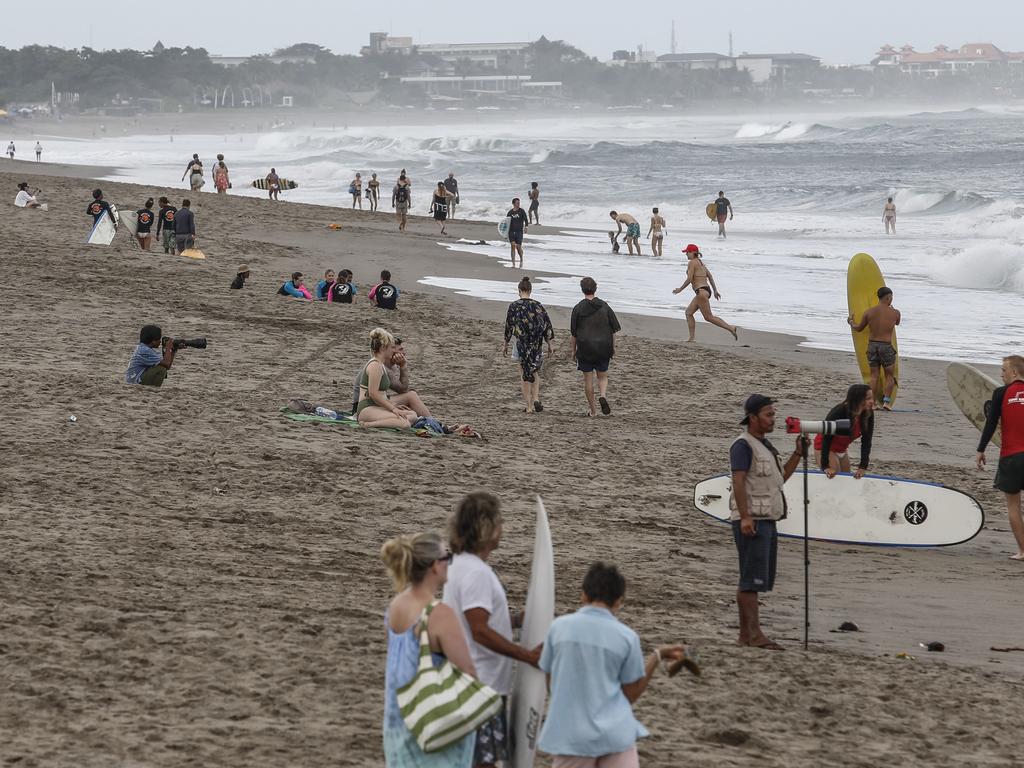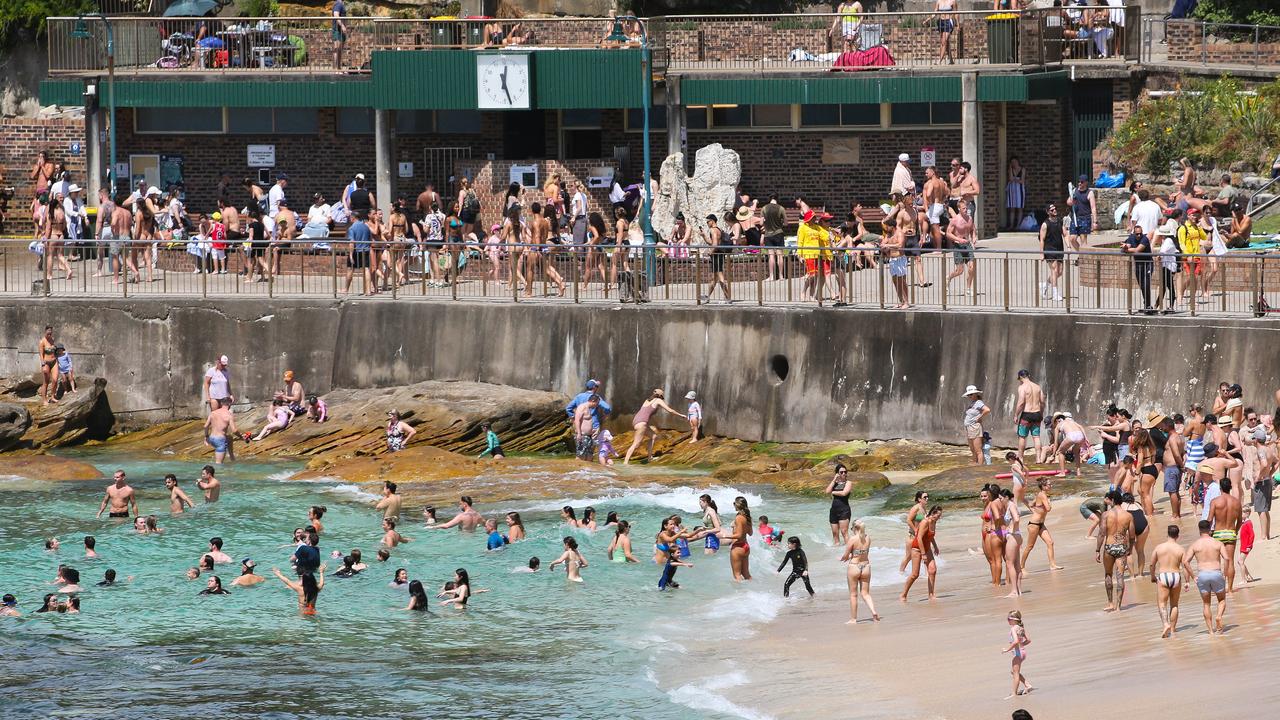What Bali sex ban means for Aussies
Indonesia’s ban on sex outside of marriage has sparked warnings for thousands of Aussies visiting Bali each week. Here’s what you need to know.
Indonesia’s controversial new ban on sex outside of marriage has sparked warnings that thousands of Australians who visit Bali every week could face prison time.
Around 16 million tourists visited Indonesia in 2019, and the country’s tourism sector, which was wiped out during Covid, has begun to rebound this year with Aussies leading the charge.
But the passage of the new law by Indonesia’s parliament on Tuesday threatens to scare away tourists again — despite assurances from some officials that foreigners will not be affected.
“I was shocked when I saw the headlines — I think the Balinese community will be thinking this is a massive setback to tourism,” said Jenny Hewett, a travel journalist who has lived on-and-off in Bali since 2016.
“Bali is Hindu majority, they’ve always been relatively autonomous but that doesn’t make them above the law.”
Bali is almost on target to hits its goal of 1.5 million tourists this year, but Hewett said the recovery could now be in jeopardy.
“It would be applicable to tourists,” Professor Simon Butt from the University of Sydney’s centre for Asian and Pacific law told the ABC.
Want to stream your news? Flash lets you stream 25+ news channels in 1 place. New to Flash? Try 1 month free. Offer available for a limited time only >

Should Aussies be worried?
Some of the most controversial articles in the new code criminalise extramarital sex, as well as the cohabitation of unmarried couples.
According to the text seen by AFP, sex outside of marriage will be punished with one year in prison while unmarried people living together could face six months in jail.
“It is important to note, however, that police cannot proceed with investigating adultery or cohabitation without a complaint,” Prof Butt said. “And not just anyone can make a complaint.”
Albert Aries from the Law and Human Rights Ministry defended the amendments before the vote and said the law would protect marriage institutions.
The only people who can make a complaint of sex outside marriage to police are a spouse, parents or children, drastically limiting the scope of the amendment, he said.
“In the old draft, a village chief could lodge a complaint but even in the 2019 draft, that part was already taken out,” he told The Sydney Morning Herald.
“Private space cannot be interfered with by a third party that does not have any relation whatsoever. That means Australian [tourists] shouldn’t be worried.”
Hewett said that while the chance of foreigners getting “caught up in the new laws are quite slim, it can happen”.
“One thing I’ve seen is foreigners and tourists getting on the wrong side of the law,” she said, suggesting tourists might end up being investigated for premarital sex after coming to the attention of police for something unrelated.
“It’s just another thing you have to worry about.”
Prof Butt said it was “unlikely, in practice, to affect tourists travelling to Indonesia, provided that no such complaints are made to Indonesian police”.
But Indonesian MP Taufik Basari warned that a foreigner who has sex with a married or unmarried local could fall foul of the law if they are reported by immediate relatives of that person.
“It is indeed problematic,” he told the newspaper.
Prof Butt added that there was also a provision on “immoral acts”.
“This might extend to public affection between people of the same gender,” he said.
Hewett said she expected a massive drop-off in LGBT tourists travelling to Indonesia.
“They’ll be going to more friendly places like Thailand,” she said.
The Department of Foreign Affairs and Trade said on Wednesday it was “seeking further clarity on the Indonesian parliament’s revisions to the criminal code”.
“We understand these revisions will not come into force for three years, and we await further information on how the revisions will be interpreted as implementing regulations are drafted and finalised,” a spokeswoman said.
“DFAT continues to keep all our travel advisories under close review, including to regularly and carefully reassess the risks to Australians overseas and to provide the latest information. DFAT will continue to monitor the situation closely.”

Three years until code starts
Indonesia’s parliament approved the legislation on Tuesday, in a move critics said was a huge setback to rights in the world’s most populous Muslim country.
After the text was endorsed by all nine parties in a sweeping overhaul of the criminal code, Deputy House Speaker Sufmi Dasco Ahmad banged the gavel to signal the text was approved and shouted “legal”.
A revision of Indonesia’s criminal code, which stretches back to the Dutch colonial era, had been debated for decades.
Rights groups protested against the amendments, denouncing them as a crackdown on civil liberties and political freedoms as well as a shift towards fundamentalism in Muslim-majority Indonesia, where the constitution recognises five religions alongside Islam.
“We have tried our best to accommodate the important issues and different opinions which were debated,” Minister of Law and Human Rights Yasonna Laoly told parliament.
“However, it is time for us to make a historical decision on the penal code amendment and to leave the colonial criminal code we inherited behind.”
The article criminalising sex outside marriage has been criticised by Indonesian business organisations as detrimental to tourism, though authorities insisted foreigners travelling to Bali would not be affected.
The new code, which still needs to be approved by President Joko Widodo, will come into force after three years.
The United States criticised the law’s human rights ramifications Tuesday, warning the new code could weaken the Indonesian economy.
“We are concerned regarding how these changes could impact the exercise of human rights and fundamental freedoms in Indonesia,” State Department spokesman Ned Price told reporters.
The United States is also worried about the law’s impact on visitors to Indonesia and “the investment climate for US companies”, Mr Price said.
Previous drafts had planned to make homosexuality illegal, but this has disappeared from the final text.
But the new rules on adultery and cohabitation could also be used to criminalise the LGBTQ community in Indonesia, said Andreas Harsono of Human Rights Watch, as the country does not acknowledge same-sex marriage.
Several other countries prohibit adultery and enforce harsh punishments on extramarital sex, including Iran, Saudi Arabia, Morocco, and the Philippines.

‘A step back for civil rights’
Analysts say the new code also curtails some political rights. Among the additions are several articles concerning blasphemy — already a crime in Indonesia — and there will be a two to four year jail term for forcing others to renounce their religion.
Spreading ideas “contradictory to Pancasila” — the official ideology of Indonesia which stresses unity and respect for ethnic and religious minorities — will be punishable by a maximum of four years in prison.
The death sentence, largely used in Indonesia for drug crimes, will now come with a 10-year probation period, after which the sentence can be reduced to life in jail if the convict shows exemplary behaviour.
Bambang Wuryanto, head of the commission that oversaw deliberations on the text, acknowledged “this is a product by humans and hence it will never be perfect”.
But he invited critics to “file a judicial review to the constitutional court” instead of demonstrating.
Rights groups slammed the legislation as morality policing.
“The passing of the criminal code bill is clearly a step back in the protection of civil rights … particularly on the rights of freedom of expression and press freedom,” Amnesty International Indonesia director Usman Hamid told AFP.
An attempt to pass a similar draft law in 2019 brought tens of thousands onto the streets in protests which eventually forced the government to back down.
On Tuesday around a dozen protesters gathered in downtown Jakarta holding banners.





